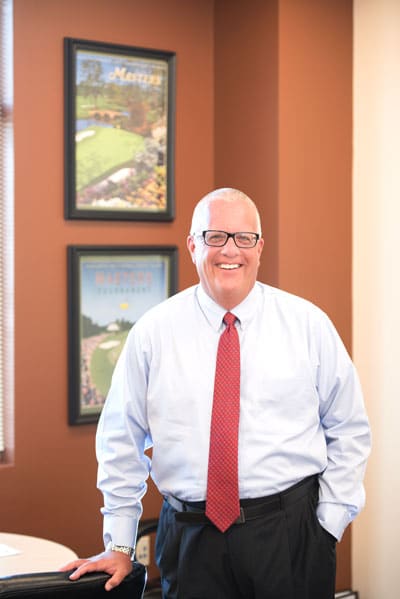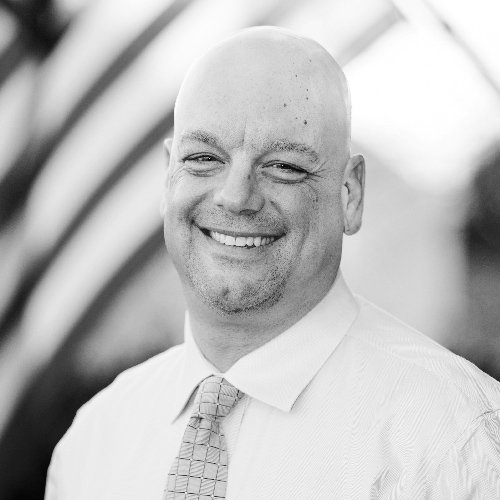Yuma, Arizona, is a place recognized for its extremes. Located at the far southwest corner of the state, the nearest larger cities are San Diego (172.5 miles to the west) and Phoenix (186 miles to the northeast). Its population of 93,000 almost doubles during winter when retirees from colder climates come in, while triple-digit temperatures—the result of being located in the heart of the Sonoran Desert—are the average for the four months of summer.
Yuma Regional Medical Center (YRMC), the city’s only hospital, is also the only comprehensive healthcare facility within a 50-mile radius. With 406 beds and more than 2,000 employees, the nonprofit facility serves an interesting population: a mixture of those winter visitors—i.e., retirees on Medicare—and thousands of workers in the area’s “winter lettuce capital,” which supplies 90 percent of America’s leafy vegetables from November through March.
The city’s permanent population is growing fast. From 2000 to 2010, the population grew by 20 percent, which is part of why the hospital completed the expansion of its 58,500-square-foot emergency department, with two elevated helipads, in 2016.

The population increase might also have something to do with the hospital’s hiring of Bob Seibel, who came aboard as YRMC’s first in-house general counsel in 2016 at the request of the hospital’s new CEO, Dr. Robert Trenschel. Trenschel had access to specialized in-house counsel in his previous position, and when he arrived at YRMC in 2015, he wanted that same resource in his new position.
But in contrast to the extremes of Yuma, Seibel’s presence brings something distinctly moderate to the organization. He’s a lawyer with bigger-city experience, particularly in medical malpractice. Yet, he seems to handle his smaller-town assignment and the legal and medical environment around him with appropriate reserve. He recognizes that the hospital is the third-largest employer in town; only two military installations operated by the US Army and Marines provide more jobs. And he also knows that with that size comes a great deal of responsibility to the community.
“The upside and downside, depending on how you look at it, is that it’s hard to stay anonymous in a place like Yuma,” Seibel says. “We are a big part of the community, and therefore, we have a big obligation.”
That means YRMC cannot treat any legal interaction purely as a one-off transaction. Within a few months of arriving at YRMC, Seibel interacted with a single attorney on five different issues, and it’s likely he’ll be facing down that same attorney in years to come.
“We have to be tough negotiators but remain professional,” Seibel says. “The art is knowing when to compromise, keeping the discussion above board, and not making it personal.”
Luckily, negotiation skills are exactly what Seibel brings to the organization, given his lengthy history in healthcare and, more specifically, medical malpractice. He was previously an associate general counsel at Augusta University Health in Georgia. He took on that role after holding similar in-house positions at a practice management and EMR systems company, a liability insurance brokerage agency, and with a firm that managed high-exposure medical malpractice claims.
“The upside and downside, depending on how you look at it, is that it’s hard to stay anonymous in a place like Yuma.
We are a big part of the community, and therefore, we have a big obligation.”
From that experience, Seibel maintains a simple philosophy. “To be successful at medical malpractice defense, you need to have a relationship with opposing counsel,” he says. “Be able to negotiate as professionals. Feel a responsibility for injured parties. It’s good for conflict resolution when you can find ways to work through differences. Above all, be a trustworthy professional.”
Part of that professionalism is to craft a consistent story in building a case. “You have to clearly articulate what your case is about,” Seibel explains. “All witnesses, all evidence leads to that story, with no extraneous information.”
In addition, he doesn’t subscribe to the idea that a strict line is drawn between lawyers who litigate and those who draw up contracts. “In litigation, there are still transactional documents, consents, judgments, and settlement agreements,” he says. “Most litigators find they are transactional lawyers, too.”
The even-keeled Seibel also takes a broader view of the overall community. In a rural setting such as Yuma, he emphasizes that the in-house counsel and organization at large need to think about long-term strategies. “We sometimes have to accept making sacrifices,” he says. “People can only stand so much conflict. It’s better to be a trustworthy advocate.”
But such a soft touch doesn’t mean he’s a pushover. Seibel’s arrival at YRMC coincides with the monumental changes in healthcare regulation. This is in addition to the economic pressures inherent to a senior population from other states—most on Medicare and Medicare Advantage—temporarily residing in Yuma. As such, YRMC is focusing on modernization—something Seibel knows from his previous work in EMRs—and meeting the requirements of the Centers for Medicare and Medicaid Services (CMS).
Seibel is also managing the overhaul of both the hospital’s corporate and medical staff bylaws to satisfy CMS mandates and to realign the hospital and medical staff.
“We have to make sure everyone has the proper perspective on their role in the organization,” he says. “We are resetting these relationships and defining how doctors and hospitals can most effectively work with each other. This involves healthy and productive conflict as we find the best way to serve the patients and the community.”
In fact, Seibel’s in-house presence is a good resource to doctors and other caregivers, which is an improvement over the previous regime that called upon lawyers only when necessary. Instead of having to consider the billable hours that a question might impose, YRMC staff can now pop into his office and have a conversation about potential legal issues, which is reducing the number of suits the hospital must face.
“We are seeing a lower frequency of cases, but what we do see is of higher severity,” Seibel says. “Tort reform has successfully limited the number of frivolous cases.” A series of bills in Arizona since 2011 and a Arizona State Supreme Court decision have favored defendants in medical negligence cases.
Seibel strongly supports the current initiative for YRMC to establish its own captive insurance company, a form of self-insurance. “Captives have a proven track record in other places,” he explains.
So although the extreme environment of the Sonoran Desert—as well as the healthcare exigencies in an isolated region with a growing senior population and other population health concerns—might create significant challenges for all aspects of hospital administration, this general counsel seems to take it in stride. A remote location, 110-degree days, and lawsuits leave Bob Seibel undaunted.

